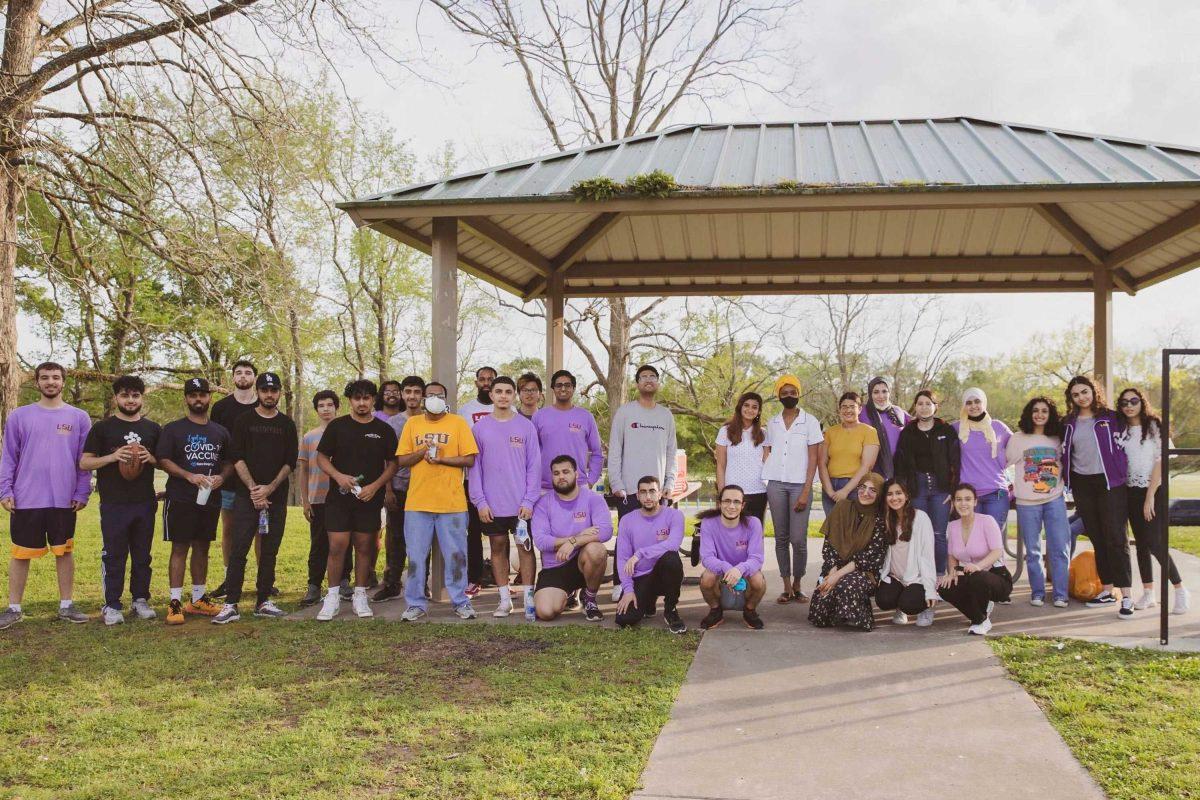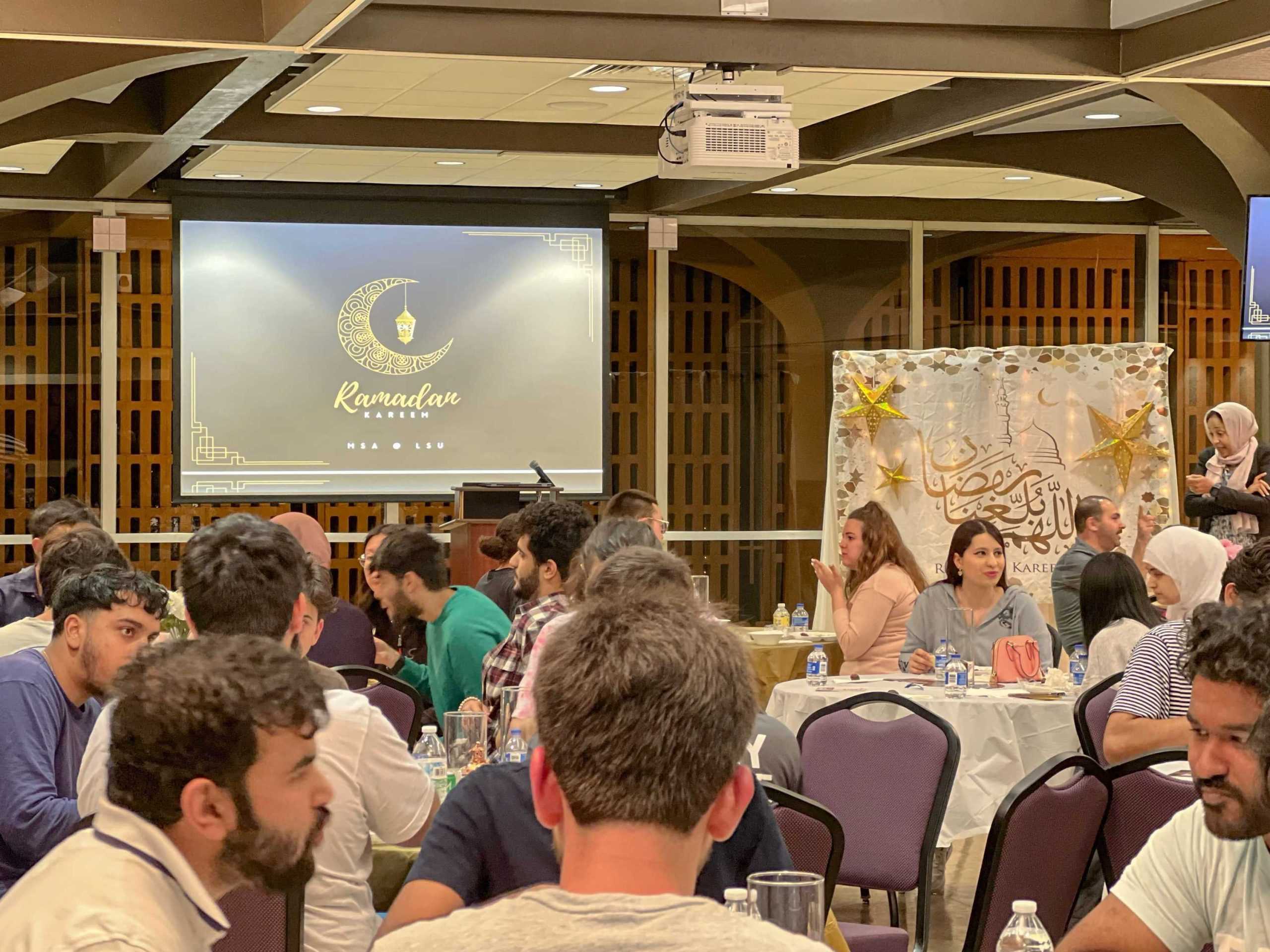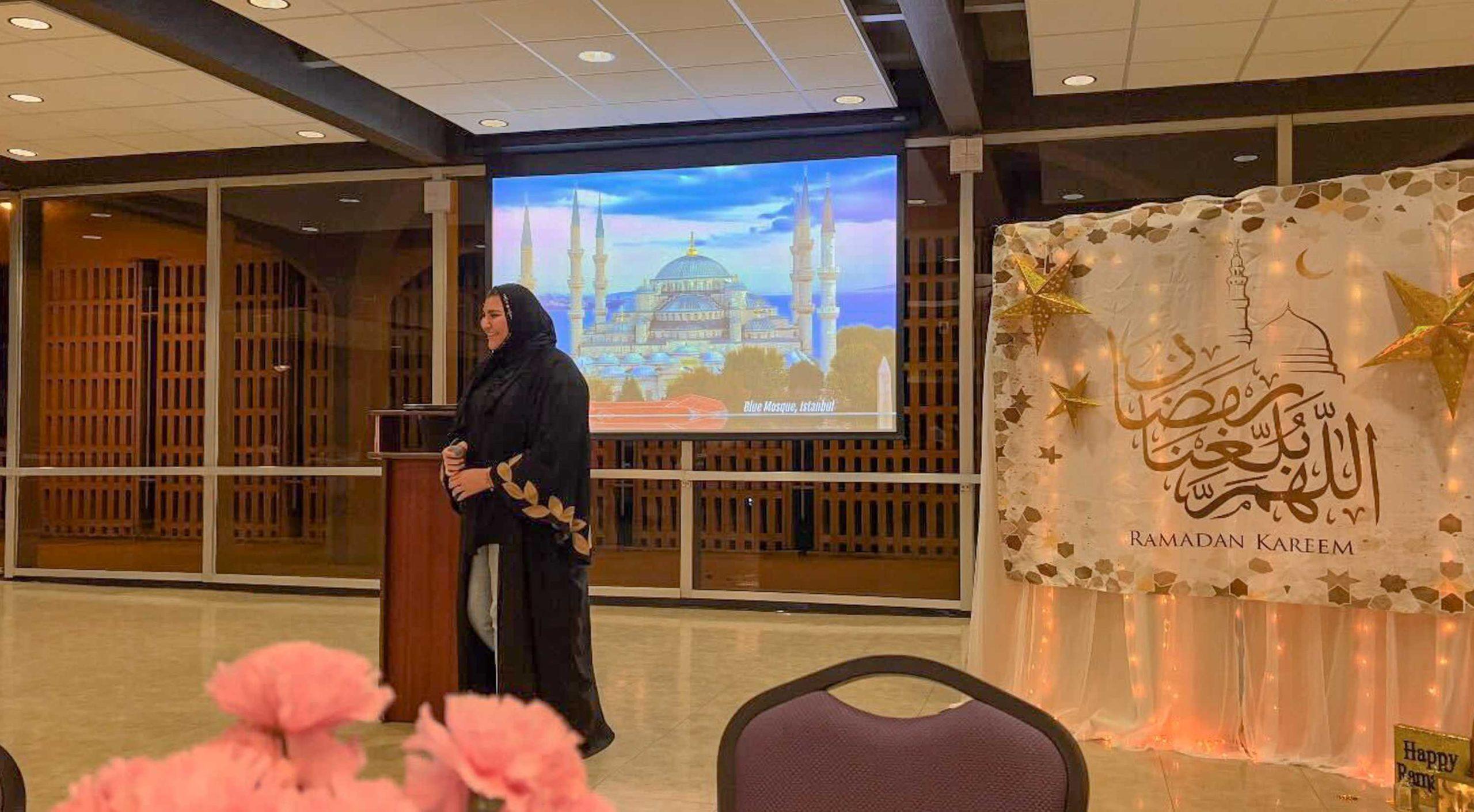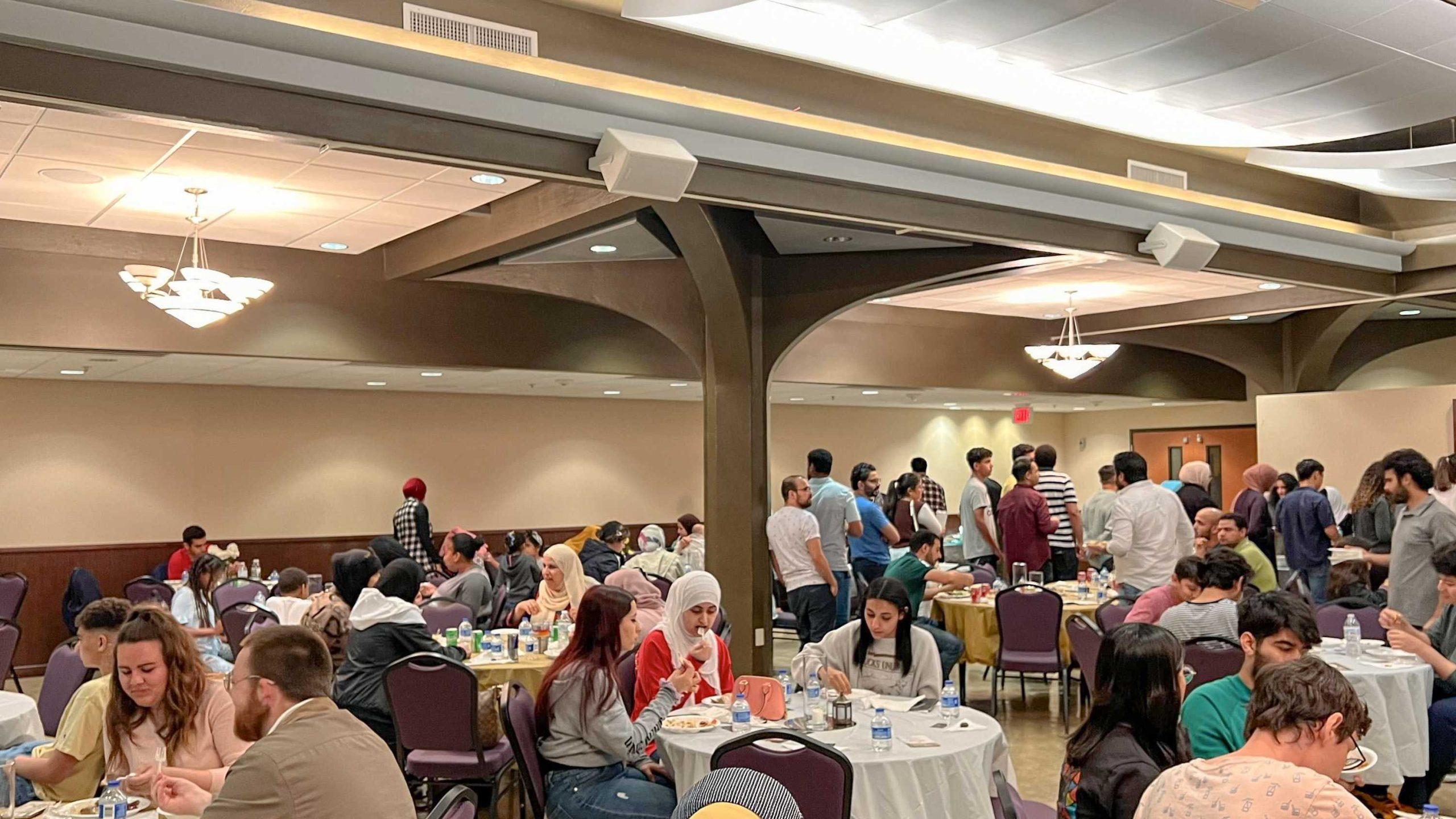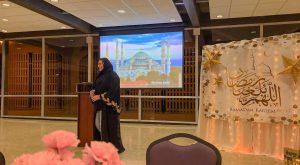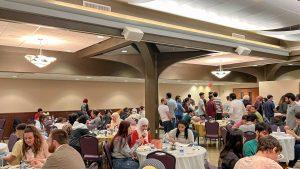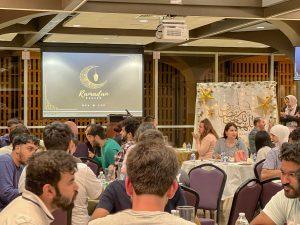When sophomore Brynali Marshall walks through Free Speech Alley wearing her hijab, she hears comments saying, “You’re going to go to hell.”
Having experienced pastors in Free Speech Alley shame her for her religious beliefs, Marshall feels that she’s been a target for stereotyping.
These incidents made Marshall feel like an outsider; however, when she found out about the Muslim Student Association, LSU’s only on-campus organization for believers of Islam, she was able to connect with others who have faced similar experiences and shared her faith.
When Marshall was applying to colleges, she wanted to attend a university with a Muslim organization on campus. She converted to Islam in 2020 and was unable to meet other Muslims in person due to COVID-19 health concerns.
She said she connected with others through websites, but it was not until she came to LSU that she met other Muslims face to face.
“My recent conversion to Muslim gave me an introduction to the religious aspect,” Marshall said. “Joining MSA showed me the various cultures that believe in Islam.”
Various students who study Islam originate from many different countries. Marshall said she’d met students from Indonesia, Iran, Afghanistan, Pakistan, Qatar, Syria, Turkey and Saudi Arabia.
“Coming to LSU and joining the MSA was a culture shock,” Marshall said. “I had a precious thought and behavior stereotype within the Islam belief. I realized that various countries that believe in Islam can hold two total cultural beliefs while studying the same religion.”
Meeting Islamic individuals from around the world on a college campus and hearing their various cultural beliefs was an eye-opening experience for Marshall. She said she hopes that students can gain cultural exposure to Islam to lessen stereotypes.
Unlike Marshall, Biological sciences and pre-dental sophomore Pardis Zare does not visibly wear a hijab in public. She said her dress preference does not define her, as she still practices Islam and attends Muslim Student Association events.
Being at LSU for Zare allows her to practice Islam while breaking stigmas and stereotypes surrounding Muslims.
“There is so much diversity within the Muslim community and MSA shows that within LSU,” Zare said.
English Junior Raneem Aburahma was a senior in high school when she heard about the Muslim Student Association at LSU. She knew that she wanted to maintain her religious traditions in college and meet other Muslims on campus.
“Coming to LSU was a shift from familiar faces to a huge campus of unknown people,” Aburahma said. “Even though I am from Louisiana, losing that sense of home was unsettling.”
The Muslim Student Association’s events, such as Ramadan, connected Aburahma to her faith and traditions.
Aburahma has seen negative stereotypes toward Muslims in movies and media portrayals in college. Although the Muslim Student Association gives Muslim students an outlet to be themselves, negative portrayals and associations still linger.
“After so many years of seeing Muslims being portrayed so poorly, the best modern media can do is put them in the background,” Aburahma said. “Just stop at this point.”
She hopes that the diversity of LSU’s organizations can help combat stereotypes and allow students who identify with their own culture to promote cultural differences themselves.
Biology education senior Maram Khalaf is the president of the Muslim Student Association. She has been in the organization since her sophomore year.
The organization was inactive her freshman year, and she decided to collaborate with other Muslim students to revive its existence.
While in the organization, Khalaf has ordered portable prayer cloths for students, has organized events such as Ramadan and food drives, and has hosted gaming nights for students. She said she does not mind using personal resources to fund the Muslim Student Association.
The Muslim Student Association has also worked with local organizations like the Greater Baton Rouge Food Bank and donated to charities through their MSA Charity Week, according to Khalaf.
Khalaf also mentioned the small number of Islamic mosques in Baton Rouge. She hasn’t been able to use the Islamic Center located on West Chimes Street since the pandemic limited its hours of accessibility.
To account for this, the Muslim Student Association uses the interfaith prayer room in the Student Union as their own mosque. Even though COVID-19 has limited access to mosques, the Muslim Student Association has chosen to keep its religion alive on campus.


